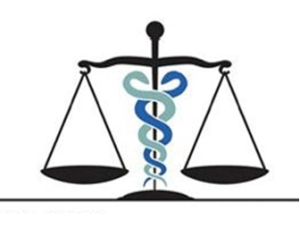 In the 1990’s Time Magazine published an article entitled “Are Allergies Coming from Our Gut’”. This poignant article discussed the link between the gastrointestinal system, allergies and autoimmune disease.
In the 1990’s Time Magazine published an article entitled “Are Allergies Coming from Our Gut’”. This poignant article discussed the link between the gastrointestinal system, allergies and autoimmune disease.
Our miraculous gut lining provides a protective barrier allowing nutrients from food to absorb through its lining into our blood, while simultaneously eliminating toxins and waste. Often this barrier (gut lining) becomes damaged over the years becoming “cracked” or “permeable” allowing these toxins to “leak” into the blood contributing to a variety of problems from allergies to auto immune disorders. This is commonly known as Leaky Gut Syndrome.
The balance of our gut (gastrointestinal system) plays a vital role in our health as approximately 80% of our immune system is located in our gut. A healthy gut can prevent toxins from being released into the blood stream causing inflammatory reactions contributing to and worsening allergy symptoms.
Allergies and asthma may start in your gut. Upset the gut’s natural mix of helpful bacteria and allergies may develop. Microflora in humans can be thrown off by antibiotics and a sugary, high fat, low fiber diet. (WebMD 2004)
Functional Medicine and Clinical Nutrition protocols focus on improving gut health as part of a comprehensive treatment to boost the immune system and reduce symptoms associated with seasonal allergies and food sensitivities. This is much different than the standard medical approach to addressing the symptoms with prescriptive or over the counter medication.
5 effective steps to reduce inflammation and balance gut health.
- Anti-inflammatory Diet – This is an ideal time of year to reduce foods linked to an inflamed gut, including wheat (gluten), simple sugars and alcohol.
- Food Sensitivity Testing – This testing allows your health professional to identify those foods your gut finds irritating and taxing to the immune system.
- Improve Gut Health – Once you have identified and removed those inflammatory food groups, replenish your gut with nutrients and medical foods designed to restore balance and heal the gut lining.
- Home Filtration w/HEPA Filters – Ideal for the main rooms of your home to reduce exposure to irritating elements in the air. Don’t forget to change your HEPA filters every 30 days.
- Rest – Cat naps, relaxation techniques and going to bed an hour earlier can do wonders and help support your immune system.
Anti-inflammatory Diet – Dr. Loren Cordain, a professor at Colorado State University and an expert on Paleolithic lifestyles, “humans are NOT designed to eat grains, and doing so may actually be damaging to your gut.” Grains actually contain anti-nutrients that may damage your gut. Cracks in your intestinal wall can then allow undigested proteins to enter your blood stream. These large complex substances are allergenic, stimulating our immune system to produce antibodies against them.
Eat more greens and essential fatty acids. Dark leafy greens are an incredible source for anti-inflammatory carotenoids, which in turn have been noted to significantly limit the effect seasonal allergies can have upon your overall health. Foods that are rich in omega-3 fatty acids has also been recommended for anyone trying to fight back against seasonal allergies.
These foods include salmon, herring, albacore tuna, walnuts and mackerels, which are all found to have incredible anti-inflammatory properties. Adding a few servings of these types of foods in your daily diet may be the difference between an allergy-free day or much time spent running for the tissues.
Stay hydrated – keeping your body hydrated is for boosting your defense against seasonal allergies. According to the Mayo Clinic, the average adult male should be drinking around 13 cups, or 3 liters of water a day, while the average woman should be consuming around 9 cups, or 2.2 liters. However, seniors who are living with seasonal allergies should be drinking even more water than what is typically recommended. PBS also states that the more water you’re putting into your body, the more support you provide to help with draining various pollens or mold out of your nasal passages, as well as tears to protect your eyes. It’s important to keep the importance of hydration in mind, especially as spring comes into full swing.
Food Sensitivity Testing – There are labs (Alcat & Immuno Labs) that specialize in identifying those foods that can contribute to an inflamed and an unbalanced gut. Inflammation caused by reactions are linked to a wide variety of chronic health problems like obesity and diabetes, as well as skin, heart, joint, and digestive disorders. Symptoms can show-up hours or even days later, making it hard to connect the dots.
Improve Gut Health. – Include Daily Probiotics “Healthy Bacteria”. Taking the right type of probiotic is important to address a healthy gut. Look for a probiotic containing high counts of both Lactobacillus and Bifidobacterium. Studying whether gut bacteria affect food allergies, a team by Cathryn Nagler, PhD, Bunning Food Allergy Professor at the University of Chicago, has made a remarkable discovery. They found that the presence of Clostridia, a common class of gut bacteria, protects against food allergies.
Natural sinus relief remedies. Nasal rinse with a Netty Pot, nasal saline or mild herbal remedies along with a natural anti-histamine containing stinging nettles, quercetin and bromelain. Our clients have had success year round by replacing over the counter products with a nutritional product called D-Hist by Orthomolecular Products.
Other Common Remedies:
- Peppermint tea has shown an ability to reduce inflammation and kill bacteria.
- Eucalyptus oil is an effective anti-inflammatory and anti-bacterial.
- Butterbur acts as like a natural antihistamine blocking chemicals that trigger swelling in the nasal passages.
- Sinupret is a product developed in Europe from a blend of botanicals effective for chronic sinusitis.
If you suffer from seasonal allergies schedule a Dietary and Metabolic Analysis today. We will review current diet, discuss symptoms, review the benefits of Food Sensitivity Testing and healthy alternatives to over the counter medicine.

 In the 1990’s Time Magazine published an article entitled “Are Allergies Coming from Our Gut’”. This poignant article discussed the link between the gastrointestinal system, allergies and autoimmune disease.
In the 1990’s Time Magazine published an article entitled “Are Allergies Coming from Our Gut’”. This poignant article discussed the link between the gastrointestinal system, allergies and autoimmune disease.
 A Board Certified Clinical Nutritionist is a Functional Medicine practitioner and trained in the diagnosis and nutritional support for most health disorders. From fatigue and headaches to chronic digestive disorders. Incorporating Functional Blood Chemistry Analysis and specialty lab testing.
A Board Certified Clinical Nutritionist is a Functional Medicine practitioner and trained in the diagnosis and nutritional support for most health disorders. From fatigue and headaches to chronic digestive disorders. Incorporating Functional Blood Chemistry Analysis and specialty lab testing.